
Long-term follow-up of the phase 2 DESTINY-Gastric02 study revealed fam-trastuzumab deruxtecan-nxki continues to show promise in locally advanced or metastatic HER2-positive gastric or gastroesophageal junction adenocarcinoma.

Your AI-Trained Oncology Knowledge Connection!


Long-term follow-up of the phase 2 DESTINY-Gastric02 study revealed fam-trastuzumab deruxtecan-nxki continues to show promise in locally advanced or metastatic HER2-positive gastric or gastroesophageal junction adenocarcinoma.

The phase 2 AMEERA-3 trial revealed no progression-free survival benefit of amcenestrant vs physician’s choice of endocrine monotherapy in patients with endocrine-resistant, estrogen receptor–positive, HER2-negative advanced breast cancer.
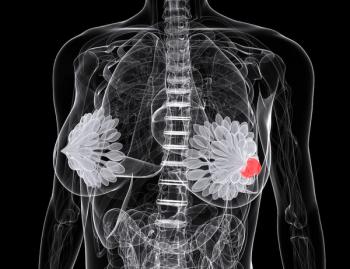
Progression-free survival and response results presented from the phase 3 TROPiCS-02 trial at 2022 ESMO indicated sacituzumab govitecan-hziy may be favorable vs physician’s choice of treatment for HER2-low or HER2 IHC0, hormone receptor¬–positive metastatic breast cancer.

Phase 1 data on efficacy and safety of ADP-A2M4CD8 in MAGE-A4–positive advanced metastatic disease shows promise at 2022 ESMO.

The nonsteroidal selective estrogen receptor modulator lasofoxifene resulted in better clinical benefit vs fulvestrant in patients with estrogen receptor (ER)–positive, HER2-negative, ESR1-mutant metastatic breast cancer.

Findings from long-term follow-up of the EMPOWER-Cervical 1 study demonstrated that cemiplimab improved survival vs chemotherapy and resulted in a safety profile like other anti–PD-L1 agents.

Long-term results of a phase 2 study (NCT02211131) revealed consistent efficacy at 5 years with talimogene laherparepvec in stage IIIB to IVM1a melanoma.
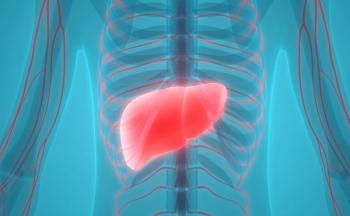
Results from the LEAP-002 trial revealed extended median overall survival with lenvatinib monotherapy in patients with unresectable hepatocullar carcinoma.
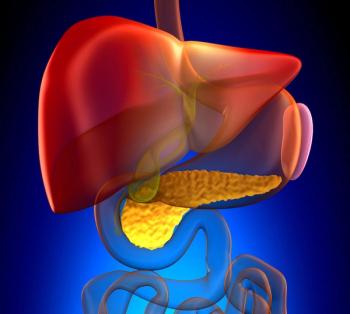
Results of a phase 3 study appear to indicate better progression-free and overall survival outcomes with camrelizumab and rivoceranib vs sorafenib in unresectable hepatocellular carcinoma.

A phase 3 study presented at 2022 ESMO showed progression-free survival benefit of nirogacestat over placebo for patients with progressive desmoid tumors.

The addition of abemaciclib vs standard-of-care chemotherapy to trastuzumab numerically improved overall survival in women with hormone receptor–positive, HER2-positive advanced breast cancer.

Findings provided rationale to limit air pollution and highlighted the need for molecularly targeted lung cancer prevention due to particulate matter being revealed as a mechanistic driver for EGFR-positive NSCLC.

A randomized phase 3 trial presented at 2022 ESMO revealed better progression-free survival outcomes with tumor-infiltrating lymphocytes vs ipilimumab in stage IIIC/IV unresectable, treatment-refractory melanoma.

The CDK4/6 inhibitor dalpiciclib in combination with letrozole or anastrozole improved progression free survival in patients with treatment-naïve advanced breast cancer.

CLDN6-directed CAR T-cell therapy BNT211-01 showed clinical activity as monotherapy and in combination with a CLDN6-encoding mRNA vaccine in relapsed/refractory advanced solid tumors.

Results from the phase 2 SYNERGY trial suggest little or no benefit of adding oleclumab to durvalumab and chemotherapy for advanced frontline triple-negative breast cancer.

Abemaciclib prolonged overall survival when added to a nonsteroidal aromatase inhibitor in hormone receptor–positive, HER2–negative breast cancer, according to updated findings from the MONARCH 3 trial presented at 2022 ESMO.

Updated results from the phase 3 TROPiCS-02 study demonstrated that the novel therapy improved overall survival, objective response rate, duration of response and overall quality of life compared with treatment of physician’s choice.

Doses of Rhenium-186 nanoliposome above 100 Gy improved overall survival in recurrent glioma, according to results from the phase 1 ReSPECT-GBM trial presented at 2022 ESMO.

Results from the phase 2 NEOpredict trial showed that the primary end point of feasibility of treatment in patients with surgical resection of non–small cell lung cancer was reached in those given preoperative nivolumab plus relatlimab.

After 7 years of follow-up, results from the phase 3 SOLO1/GOG-3004 trial support maintenance olaparib to achieve long-term remission in women with newly diagnosed advanced ovarian cancer.

Results of the phase 3 ARIEL4 trial comparing rucaparib vs chemotherapy for patients with relapsed ovarian cancer and deleterious BRCA1/2 mutations were presented at 2022 ESMO and raised questions about optimal sequencing of PARP inhibitors in this setting.

The final analysis of the PAOLA-1/ENGOT-ov25 trial confirmed the benefit of olaparib plus bevacizumab as maintenance therapy following frontline treatment in women with HRD-positive advanced ovarian cancer.

Brian Rini, MD, discussed abstracts presented during the 2021 ESMO Congress that will have an immediate impact on prostate cancer.

Scott Tagawa, MD, spoke about the implications of the results from his research on treatment patterns of patients with metastatic castration-sensitive prostate cancer, as well as the need for further studies with other data sets.
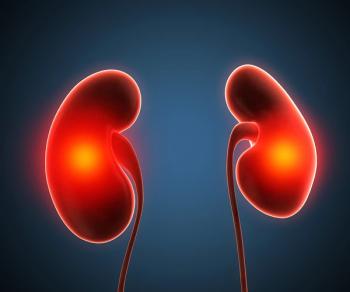
Brian I. Rini, MD, detailed the focus, goals, and key end points of a 3-arm, phase 3 trial comparing MK-1308A or belzutifan plus lenvatinib and pembrolizumab to the control of lenvatinib and pembrolizumab alone to treat patients with advanced clear cell renal cell carcinoma.
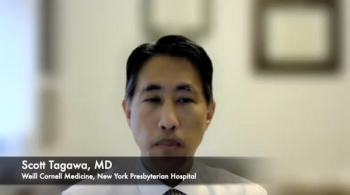
Scott Tagawa, MD, MS, detailed 2 presentations from ESMO’s presidential symposium that he thinks will have an impact on treating patients with metastatic castration-sensitive prostate cancer.

CancerNetwork® sat down with Alicia Morgans MD, MPH, at the 2021 European Society for Medical Oncology to talk survival and progression outcomes from the CARD trial in patients with metastatic castration-resistant prostate cancer.

CancerNetwork® sat down with Alicia Morgans MD, MPH, at the 2021 European Society for Medical Oncology to discuss how a hypothetical cohort from the CARD trial highlighted the impact of treatment with cabazitaxel on costs and complications in patients with metastatic castration-resistant prostate cancer.
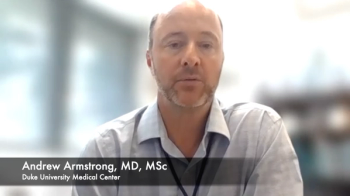
CancerNetwork® sat down with Andrew Armstrong, MD, MSc, at the 2021 European Society for Medical Oncology Congress to talk about overall survival results found the phase 3 ARCHES study.